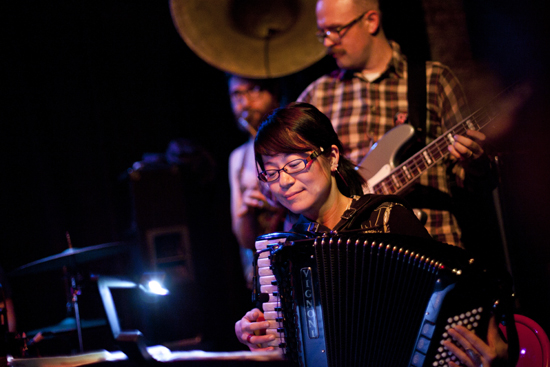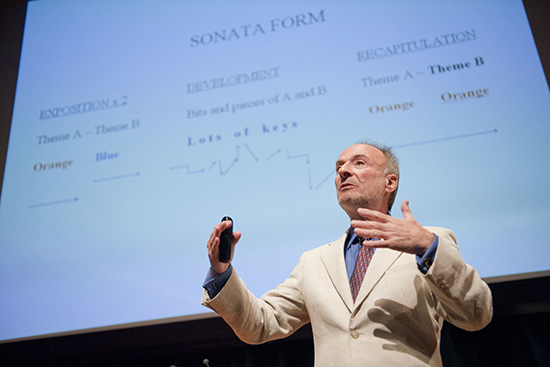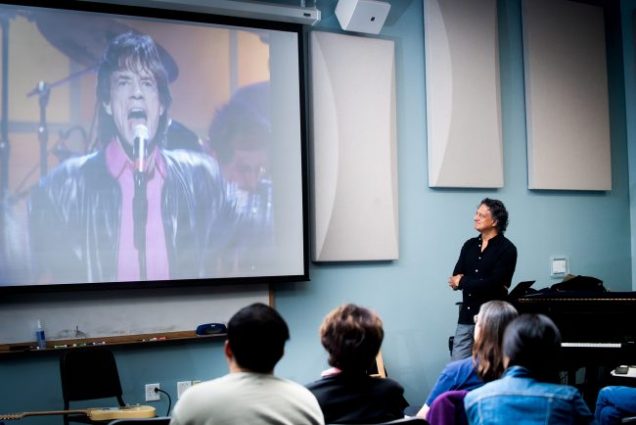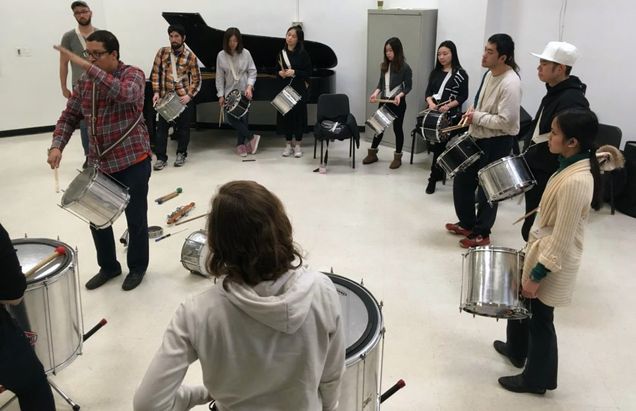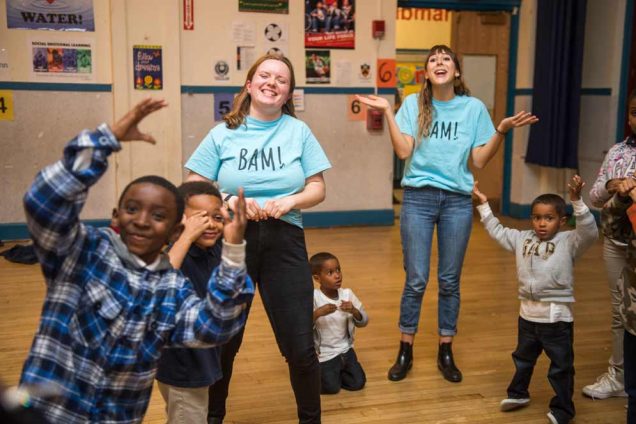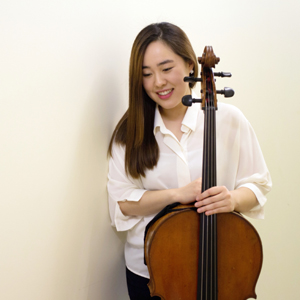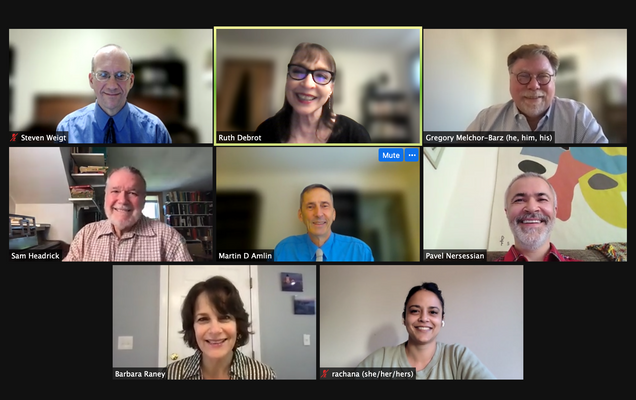Spring 2023
CFA MH 722 (3 credits) / MH 822 (4 credits)
W 6:30 – 9:15pm | Prof. Jeannette D. Jones
What was it like for a singer to walk from the Low Countries, across the Alps, and then sing in the Sistine Chapel? Was it noisy when the Hours were sung in adjacent chapels for different foundations? What are the contours of a choirbook? Why are rivers important? This course examines different topographies of musical culture between 1400–1600– in both Europe and other cultures of contact– drawing on the human relationship with the natural world as a locus for musical experience, literally and figuratively.
Engaging with primary sources, including music prints, manuscripts, and treatises, we examine how resources were created and transferred; how social networks were formed and hierarchies articulated within them; and how physical geography shaped identities and experiences in these cultural circles. This course provides an introduction to the research skills for music in this time period, including codicology, paleography, archival documents, and historical notation, as well as drawing from a breadth of interdisciplinary fields, including digital humanities, environmental humanities, sound studies, and art and literature of the era.
CFA MH 561 (1 credit)
Th 6:30 – 9:15pm | Prof. Brita Heimarck
In this ensemble, students will learn to play traditional Balinese xylophone music (gender wayang) with a rich array of syncopated, interlocking patterns, shimmering resonances, and beautiful melodies. Weekly practicing and participation will assist the class to learn at least one complex gender wayang piece in both the polos (basic melody) part and the sangsih counterpart during the semester. In addition, class members may develop their own compositions and arrangements for the concerts this semester. Students will have opportunities to experiment with other world music instruments in our collection and to explore a variety of timbres, textures, melodies, and rhythms. Participants in this ensemble may also create world music fusion pieces using their own instruments in combination with world music elements. Shadow puppets and theatrical elements may also be incorporated. All students are welcome to join with no prerequisites.
CFA MP 582 (Var.)
Prof. David Schulenberg
Continuo playing is a basic element of musical performance: the art of improvising an accompaniment brom a bass line, used especially in Baroque music, from the operas of Monteverdi to Vivaldi concertos and Bach flute sonatas. This course introduces not only early-music performers but also pianists and players of other instruments to the practical skills of accompanying from a figured bass. The course begins with basic principles, leading to actual continuo playing; it also provides guidance in the stylish adaptation of written-out continuo parts. No previous work in early music is required, nor is it necessary to have had advanced training in music theory. Those with prior experience in continuo playing will have the opportunity to undertake advanced projects. Keyboard players will receive hands-on coaching at the harpsichord.
CFA MH 629 A1 (1 credit)
Sat & Sun (Feb. 25-26) 10:00am – 5:00pm | Prof. Joshua Rifkin
Claudio Monteverdi (1567–1643) and Henrich (Heinrich) Schütz (1585–1672) stand as the greatest composers of Italy and Germany, respectively, in the first half of the seventeenth century. Although Monteverdi never left his native country, his influence traveled throughout Europe; Schütz spent the years 1609–1612 in Venice as a pupil of Giovanni Gabrieli, and returned there in 1629, when he very likely came to know Monteverdi personally. This second Venetian sojourn left a profound impact on Schütz’s music, including adaptations of Monteverdi’s madrigals Armato il cor and Zefiro torna. We shall consider both composers in relationship and contrast to each other, and to delve particularly into questions of performance – not only in theory, but also in actuality.
CFA MH 629 B1 (1 credit)
Sat & Sun (Apr. 1-2) 10:00am – 5:00pm | Prof. Joshua Rifkin
Bach’s arias form such a familiar part of our musical landscape that we often neglect to think very much about them. Yet questions abound: What does Bach mean by aria (not exactly what some might imagine)? What defines an aria textually and musically? And what challenges do the arias pose for performers – singers and instrumentalists alike? Through examination of original sources and with practical experimentation we shall try to find convincing answers to these and other questions.
CFA MH 629 C1 (1 credit)
Sat & Sun (Apr. 1-2) 10:00am – 5:00pm | Prof. Joshua Rifkin
Bach left a relatively small body of chamber music, understood here as works for two to four performers – roughly, the compositions encompassed in the BWV catalogue numbers 1014–1034. These pieces offer many challenges, both to performers and to scholars, starting with questions of authorship and extending to such aspects of realization as scoring, tempo, balance, and phrasing. As with the mini-course devoted to arias, we hope to tackle these matters both through investigations of original sources and through live performance.
CFA MH 726 (3 credits) / MH 826 (4 credits)
W 12:30 – 3:15pm | Prof. Jeremy Yudkin
The course will consist of an analysis of some of the major works of Béla Bartók. The works span the period from the composer’s first achievement of an individual voice to the end of an era (his death in the United States in 1945). Our survey will be comprehensive and thorough. We shall take into account all reasonable analytical approaches, and we shall undertake a close examination of some specific works. Our analysis will place the works in the context of the composer’s life, as well as the intellectual, cultural, and musical climate of their times, and compare their achievement with that of Bartók’s contemporaries. We shall also consider issues of performance — the ways in which intelligent, insightful performances can embody the knowledge we have gained.
CFA MH 727 A1
M 2:30 – 5:15pm | Prof. Andrew Shenton
After a general introduction to the topic, this seminar will study the developmental history of performance practice and the application of its principles and methodology to a diverse range of classical music from plainsong to the present. The discussion will focus on issues such as notation, interpretation, improvisation, organology, iconography, editing, style, and sources. It will examine important treatises and instructional books such as those by Zarlino, Quantz, C.P.E. Bach, Couperin, and Leopold Mozart; and more modern sources of information such as music boxes, piano rolls, and recordings. The seminar is designed to provide performers with the skills necessary for informed execution and interpretation of the music they play. It will concentrate on developing inquiry practices and habits of mind so that students can engage in discussion of areas of ambiguity or controversy and can effectively interpret notated, omitted, and indeterminate marks in a score in a manner that is stylistically appropriate.
CFA MH 761 (3 credits) / MH 861 (4 credits)
T 12:30 – 3:15pm | Prof. Brita Heimarck
This course is designed as a historical introduction to the discipline of Ethnomusicology as well as related fields that have intersected and informed the trajectory of ethnomusicology. Beginning with the scholarship that founded Comparative Musicology in the late 19th century and the musical currents of Cultural Anthropology in early 20th century, the course moves through successive periods of disciplinary orientations and cross-disciplinary affiliations. from the Anthropology of Music of the 1960s to the interdisciplinary Sound Studies of the 2000s; and, more globally, from the colonialist foundations of (ethno)musicology to the recent decolonial critiques of the discipline(s).
CFA MH 771 (3 credits) / MH 871 (4 credits)
T 3:30 – 6:15pm | Prof. Marié Abe
Music can be a form of weapon or torture; a mediating force in a process of conflict resolution; a force complicit with violence; storehouse of memory and/or process of healing for survivors of violence; a mode of resistance against a violent regime; and a creative process of alliance-building, among many others. This seminar explores the various intersections of music and violence, considered broadly—from mass political conflict to everyday violence that is structural, symbolic, and otherwise—, and the emerging body of scholarship within ethnomusicology over the last decade dedicated to the subject. At the heart of seminar discussions will be an investigation into the role of expressive culture in generating, mediating, contesting, or sustaining political and other social violence, and the question of how music enables us to think creatively through the relationship between critical attention, compassion, and commitment.
CFA MP 782 (2 credits)
T Th 12:30 – 3:15pm | Prof. Joshua Rifkin
Bach’s two surviving Passion settings – St. Matthew, BWV 244, and St. John, BWV 245 – remain among the mainstays of our musical life. But they have not remained the same in our musical life, undergoing rethinking and reinterpretation ever since Felix Mendelssohn’s epoch-making revival of the St. Matthew Passion in 1729.
In the sessions of this course, we shall try to consider many of the issues surrounding the Passions in Bach’s time and later eras, not least our own. The focus will lie on performance, with special emphasis on questions of ensemble size and disposition, tempo, nuances of delivery, and how these all relate to expression and meaning. Our approach will proceed from an unapologetically “historical” perspective, built around Bach’s own practice as revealed above all in the vocal and instrumental parts used by his singers and players.
CFA MU 855 ZJ (4 credits)
T Th 12:30 – 1:45pm | Prof. Leland Clarke
Examines how Spirituals have served as essential touch points for all styles of African-American music, ranging from gospel to classical, and are even frequently sampled in hip-hop. Students will study how African American classical composers, including Florence Price; visual artist Aaron David, choreographer Alvin Ailey and American novelist Toni Morrison have utilized spirituals as reference material through direct quotations, themes, variations and performances.
By focusing on this musical expression and the strength of human spirit expressed through this music, students will learn how enslaved peoples maintained their dignity, resisted the dehumanizing impact of slavery, and fought to preserve key cultural and linguistic elements even in the midst of the horrible oppression of slavery. Finally, students will examine why Spirituals have played a significant role as vehicles for protest at intermittent points during the twentieth and early twenty-first centuries around the world including Russia, Eastern Europe, China and South Africa. Some of today’s well-known pop artists continue to draw on the spiritual’s tradition in the creation of new protest songs. Examples include Bob Marley’s “Redemption Song” and Billy Bragg’s “Sing their souls back home.”
CFA MU 855 ZA (Var.)
Th 12:30 – 3:15pm | Prof. Miki Kaneda
This course focuses on studies of musical and sonic practices in the context of transcultural flows of people, music, commodities, and power around East Asia and the Pacific region. Centering the investigation in and around the Pacific Ocean, readings will highlight critical oceanic and aqueous perspectives.
Fall 2023
CFA MH 401 (2 credits)
W 4:30-6:15pm | Dr. Pamela Feo
Review of music history and literature from the Middle Ages to present.
CFA MH 561 (1 credit)
Th 6:30-9:15pm | Prof. Michael Birenbaum Quintero
The Afro-Latin American Music of the Americas Ensemble (ALMA) is dedicated to the ancestral music, cultural legacy and social realities of Afro-Latin Americans. Students will learn to play a repertoire of traditional Afro-Latin American secular and spiritual genres, potentially including Afro-Colombian currulao, gaita, and bullerengue; Afro-Cuban rumba, batá, son, and güiro; Puerto Rican plena, Peruvian landó, and Dominican palos and merengue, and be exposed to their historical, social, and cosmological aspects in part through visits from master musicians resident in Massachusetts.
NO MUSICAL EXPERIENCE REQUIRED.
CFA MH 627 (3 credits)
T Th 11am-12:15pm | Prof. Andrew Shenton
Opera has always been at the forefront of the avant-grade in the arts. This course examines western opera in all its aspects from 1945 to the present. Students will investigate important and ground-breaking developments in opera design, staging, dramaturgy, and music via a curated selection of operas by (among others) Britten, Poulenc, Stravinsky, Bernstein, Zimmermann, Ligeti, Messiaen, Weir, and Laitman. We will critique the many methodological approaches to the study of opera, survey the contemporary international opera scene, and attempt to assess the future for this diverse art form.
CFA MH 620 (3 credits)
T 12:30-3:15pm | Prof. Miki Kaneda
This course explores different genres of writing about music that are particularly relevant to students in the performance track. Examples of writing genres include concert reviews/previews, liner notes, interviews, biographies, grants, pedagogical writing, artistic statements, and critical essays. Students produce their own writing in a number of these genres based on their career interests and trajectories.
CFA MH 726 (3 credits) / MH 826 (4 credits)
W 2:30-5:15pm | Prof. Jeremy Yudkin
The question of race has always been inextricably tied up with the history of jazz in America. From the origins of the music in the late nineteenth century to the present day’s social and cultural divisions, racial identity is either at the forefront or lurking in the background of both the performance and the reception of jazz. But this element has not always run in one direction. We shall trace the interwoven strands of various musical cultures in the beginnings of jazz music, its reception in the press and other publications, and the gradual shifting of opinion up until the 1950s, when the civil rights struggle and Black militarism found their way into both discussion and performance of the music. Discrimination in both directions has marked jazz culture until relatively recently.
CFA MH 837 (4 credits)
9/5-10/23 | Prof. Alexandre Abdoulaev
The course addresses elements and aspects of African-American music which extend beyond the confines of blues, including early rock’n’roll, hip-hop, 1940s big band jazz, and beyond. Additionally, the course incorporates a variety of intertextual elements, including literary cross-currents in African-American linguistic theory (as relevant to music), including Henry Louis Gates’ seminal text Signifying Monkey and more.
CFA MH 750 (4 credits)
10/31-12/18 | Prof. Ulrike Praeger
This course will work toward a 21st-century aesthetic of musicking. Expanding on Christopher Small’s reevaluation of performing and listening, students will investigate what it means for individuals and collectives “to musick” in the 21st century through notions of sound, (dis)place(ment), disability, ecology, media, ethnocentrism, morality, empathy, and provocation. After conceptualizing these frameworks, students will apply them to their communities to ground this understanding in the diverse worlds in which they live, teach, and work.
CFA MH 720 (3 credits) / MH 820 (4 credits)
W 2:30-5:15pm | Prof. Michael Birenbaum Quintero
This course has three general threads. The first traces an intellectual history or genealogy of the ways in which questions about music have been formulated in the Western academy, and specifically in the (sub-)disciplines of historical musicology and ethnomusicology. Secondly, we will follow particular issues to examine the different approaches in each of the disciplines. Finally, students will complete assignments that will give them real-world experience in carrying out the kinds of tasks that scholars carry out as professional academics in the musicologies.
Before embarking on your own original research, it is vital to understand disciplinary histories and trends, and thereby situate your work in an ongoing intellectual conversation. The goal of this seminar is for you to be even better positioned to participate in the discourse(s) of musicology and ethnomusicology by identifying the stakes and relevance of any musical scholarship you encounter, as well as of your own research.
CFA MH 771 (3 credits) / MH 871 (4 credits)
T 3:30-6:15pm
The course description will be posted soon.
CFA MU 855 ZD (4 credits)
T 12:30-3:15pm | Prof. Rachana Vajjhala
Serge Diaghilev, impresario of the Ballets Russes, commanded his dancers: “Astonish me!” The troupe astonished not only him. They mesmerized European audiences for years to come. Indeed, the Ballets Russes has come to be, in Jennifer Homans’s words, “the most renowned company in the history of ballet.” In this course, we will trace the troupe’s twenty-year lifespan (1909 to 1929) through a survey of its main premieres. We will also consider the Ballets Russes’s legacy, including its continued influence on music and dance productions even after its dissolution.
This course counts toward the 600-level MH requirement for MM and DMA students.
CFA MU 855 ZE (4 credits)
W 2:30-5:15pm | Prof. Brita Heimarck
This course considers the fascination of Western composers with Indonesian gamelan music. We will start with the Paris World’s Fair of 1889 where Debussy first experienced Javanese gamelan music and later wrote his impressionistic piece, “Pagodes” among others. We then consider British composer Benjamin Britten’s score for the ballet The Prince of the Pagodas, where he re-created a gamelan-style texture in several sections, and the minimalism of American composer Philip Glass inspired by the textures and pentatonic patterns of gamelan orchestras. Continuing with Canadian and American composers, we will read the works of Colin McPhee, including A House in Bali, and Music in Bali: A Study in Form and Instrumental Organization in Balinese Orchestral Music (Yale University Press, 1966). We will compare McPhee’s own compositions with the shadow play music of Bali known as gender wayang, through an exploration of my music edition entitled, Gender Wayang Music of Bapak I Wayan Loceng from Sukawati, Bali: A Musical Biography, Musical Ethnography, and Critical Edition, Heimarck ed.(A-R Editions, 2015).We continue to grapple with alternate interpretations of McPhee by reading Carol Oja’s book, Colin McPhee: Composer in Two Worlds (Urbana and Chicago: University of Illinois Press, 2004/1990). In the American tradition we will explore the compositions and new tuning experiments of Lou Harrison, as well as compositions by Michael Tenzer, Professor of Ethnomusicology at UBC in Vancouver, Canada, and Evan Ziporyn, Kenan Sahin Distinguished Professor, Chair of the Music and Theater Arts Department at MIT in Cambridge, MA. Through reading, listening, and analysis, we will unpack the vast array of Balinese and Javanese gamelan musical influences within the compositions of American, Canadian, and European composers since 1903. In addition to the compositions themselves that will be studied both as scores and through recordings, primary sources we will read and discuss in class include concert programs, World Fair descriptions, illustrations, and advertisements before, during, and after they occurred, newspaper articles, or composers’ writings.
Students will learn to play Balinese xylophones (gender wayang), which will teach them the performance practice techniques such as how to hold the mallets, how to strike and dampen the keys while performing unison, interlocking, or polyphonic melodies on paired instruments. They will learn one Balinese composition from Sukawati village. Once familiar with this genre, they will create a new composition for solo or group performance using the Balinese instruments, or transferring these sound techniques to another ensemble. They may compose for a solo instrument, an ensemble of Balinese metallophones, or a mixed ensemble of Balinese and Western instruments. They may also apply Balinese timbres, textures, and compositional styles to a different set of instruments. Students may work alone or as part of a team to complete their composition. During the compositional process, students will be asked to play their work in progress for the class and the class will discuss it and offer constructive suggestions to assist in the creative process. New musical ideas will be tested with group involvement offering new perspectives and creative possibilities for each individual student that they are free to incorporate into their work.
This course counts toward the 600-level MH requirement for MM and DMA students.
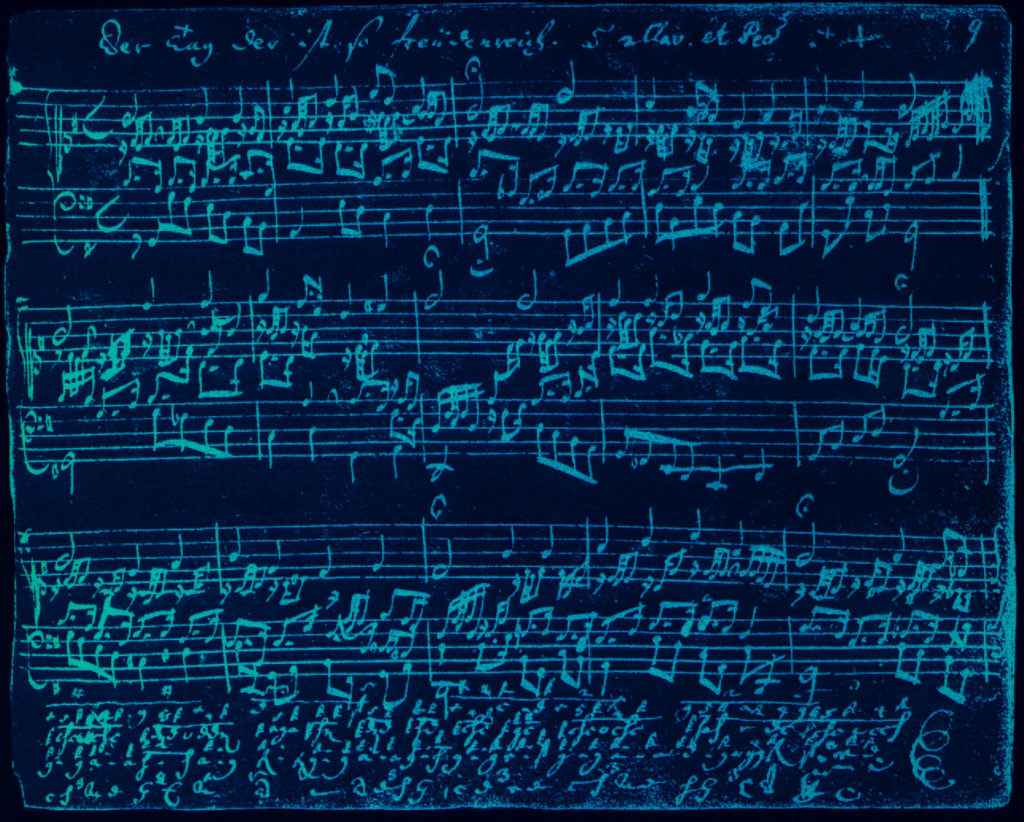
Degree Requirements
The MA in Musicology is for students who are working toward entrance to a Ph.D. program, performing students with academic interests, and students preparing for positions in the music industry. To enter, students normally possess an undergraduate degree in music or its equivalent.
Visit the BU Bulletin for additional information on course requirements, language requirement, master’s thesis, and more.
